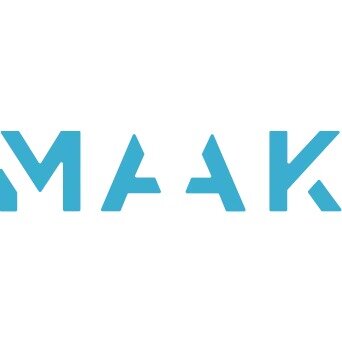Best Debt Capital Markets Lawyers in Netherlands
Share your needs with us, get contacted by law firms.
Free. Takes 2 min.
Or refine your search by selecting a city:
List of the best lawyers in Netherlands
About Debt Capital Markets Law in Netherlands
Debt Capital Markets (DCM) are an essential area of finance in the Netherlands, enabling companies, financial institutions, and governments to raise funds through the issuance of debt securities such as bonds, notes, and commercial paper. The Dutch DCM is highly developed and has robust legal and regulatory frameworks, making the Netherlands a key European financial hub. This field involves a complex interplay between local regulations, EU directives, market practices, and cross-border legal considerations.
Why You May Need a Lawyer
Navigating the Debt Capital Markets in the Netherlands often requires specialized legal expertise. Some common situations where seeking legal help is essential include:
- Structuring and issuing bonds or other debt instruments for financing.
- Ensuring regulatory compliance with Dutch and EU securities laws.
- Drafting and negotiating documentation such as prospectuses, offering memoranda, or listing particulars.
- Advising on public versus private debt offerings.
- Handling cross-border DCM transactions and understanding different jurisdictional requirements.
- Assisting with the listing of debt securities on regulated markets such as Euronext Amsterdam.
- Managing investor relations and disclosure obligations.
- Addressing disputes, defaults, or restructuring of existing debt instruments.
Local Laws Overview
Dutch Debt Capital Markets are regulated by a combination of domestic and European Union legislation. The main legal and regulatory aspects relevant in the Netherlands include:
- Financial Supervision Act (Wet op het financieel toezicht - Wft): This act sets out the supervision of financial markets, including the issuance and distribution of debt securities.
- Prospectus Regulation (EU): Issuers may need to publish a prospectus approved by the Dutch Authority for the Financial Markets (AFM) when offering securities to the public or seeking admission to a regulated market.
- Market Abuse Regulation (EU): Strict rules against insider trading, market manipulation, and disclosures of inside information apply.
- Listing Rules: Debt instruments listed on Euronext Amsterdam must comply with additional listing, transparency, and ongoing obligations.
- Contract Law: Custom-made contracts and terms often apply to more complex or private offerings.
- Tax Law: Taxation of interest income, withholding tax, and other fiscal matters require attention.
These laws ensure transparency, investor protection, and market integrity within Dutch DCM transactions.
Frequently Asked Questions
What are Debt Capital Markets?
Debt Capital Markets refer to the marketplace where companies and governments can raise funding by issuing debt securities, such as bonds, to investors. In the Netherlands, this market is highly regulated to ensure safety and transparency.
Do I need regulatory approval to issue debt securities in the Netherlands?
Yes. If you are making a public offer or seeking to list debt securities, you generally need approval from the Dutch Authority for the Financial Markets (AFM) for your prospectus, unless an exemption applies.
What documents are required for a Dutch debt issuance?
Commonly required documents include a prospectus or offering memorandum, terms and conditions of the securities, board resolutions, and sometimes legal opinions or tax documents.
Are there any exemptions from publishing a prospectus?
Yes. Certain private placements or small offerings may be exempt from the prospectus requirement under Dutch and EU law. A lawyer can advise on your specific situation.
What are the tax considerations for issuing debt in the Netherlands?
Tax treatment varies depending on the structure of the debt instrument, residency status of investors, and applicable treaties. It's important to obtain legal and tax advice early in the process.
How are DCM transactions supervised in the Netherlands?
The Dutch Authority for the Financial Markets (AFM) and the Dutch Central Bank (DNB) jointly supervise financial markets, including debt issuances, to ensure compliance with laws and investor protection.
Can foreign companies issue debt securities in the Netherlands?
Yes, foreign issuers can access the Dutch DCM, but they must comply with local regulations, which may include prospectus and listing requirements.
What happens if there is a default on Dutch debt securities?
Default procedures are usually governed by the terms of the debt instrument, supplemented by Dutch contract law and insolvency law. Creditors may seek legal remedies such as enforcement, restructuring, or insolvency proceedings.
What ongoing obligations apply after a debt issuance?
Issuers may have disclosure and reporting obligations, especially if securities are listed. This includes publishing financial information, notifying of inside information, and adhering to market abuse regulations.
How long does it take to complete a debt capital markets transaction in the Netherlands?
Timelines vary. Simple private placements may be completed within weeks, while public offerings involving a prospectus and listing may take one to three months, depending on complexity and regulatory review.
Additional Resources
Those seeking more information or support regarding Debt Capital Markets law in the Netherlands can refer to the following resources:
- Dutch Authority for the Financial Markets (AFM): The main supervisory authority for securities regulation.
- Dutch Central Bank (De Nederlandsche Bank - DNB): Supervises financial institutions and systemic stability.
- Euronext Amsterdam: The primary stock exchange for listing debt instruments in the Netherlands.
- Ministry of Finance: Oversees broader financial policy and regulation environment.
- Dutch Bar Association (Nederlandse Orde van Advocaten): To find qualified legal professionals specializing in DCM law.
- Legal publications and industry reports: These can provide updates on law changes and market developments.
Next Steps
If you require legal support for a Debt Capital Markets transaction in the Netherlands, consider taking the following steps:
- Identify your transaction requirements and gather relevant information regarding your intended issuance or involvement in the DCM.
- Seek out legal professionals or law firms with a strong DCM and securities law practice in the Netherlands.
- Arrange a consultation to discuss your specific goals, timelines, and any regulatory or documentation needs.
- Work closely with your adviser to ensure all regulatory filings, legal documents, and compliance matters are handled properly from start to finish.
- Stay informed of any ongoing obligations or regulatory developments that could affect your transaction or business in the Dutch Debt Capital Markets.
Taking these proactive steps can help ensure a successful and compliant DCM transaction in the Netherlands.
Lawzana helps you find the best lawyers and law firms in Netherlands through a curated and pre-screened list of qualified legal professionals. Our platform offers rankings and detailed profiles of attorneys and law firms, allowing you to compare based on practice areas, including Debt Capital Markets, experience, and client feedback.
Each profile includes a description of the firm's areas of practice, client reviews, team members and partners, year of establishment, spoken languages, office locations, contact information, social media presence, and any published articles or resources. Most firms on our platform speak English and are experienced in both local and international legal matters.
Get a quote from top-rated law firms in Netherlands — quickly, securely, and without unnecessary hassle.
Disclaimer:
The information provided on this page is for general informational purposes only and does not constitute legal advice. While we strive to ensure the accuracy and relevance of the content, legal information may change over time, and interpretations of the law can vary. You should always consult with a qualified legal professional for advice specific to your situation.
We disclaim all liability for actions taken or not taken based on the content of this page. If you believe any information is incorrect or outdated, please contact us, and we will review and update it where appropriate.
Browse debt capital markets law firms by city in Netherlands
Refine your search by selecting a city.















